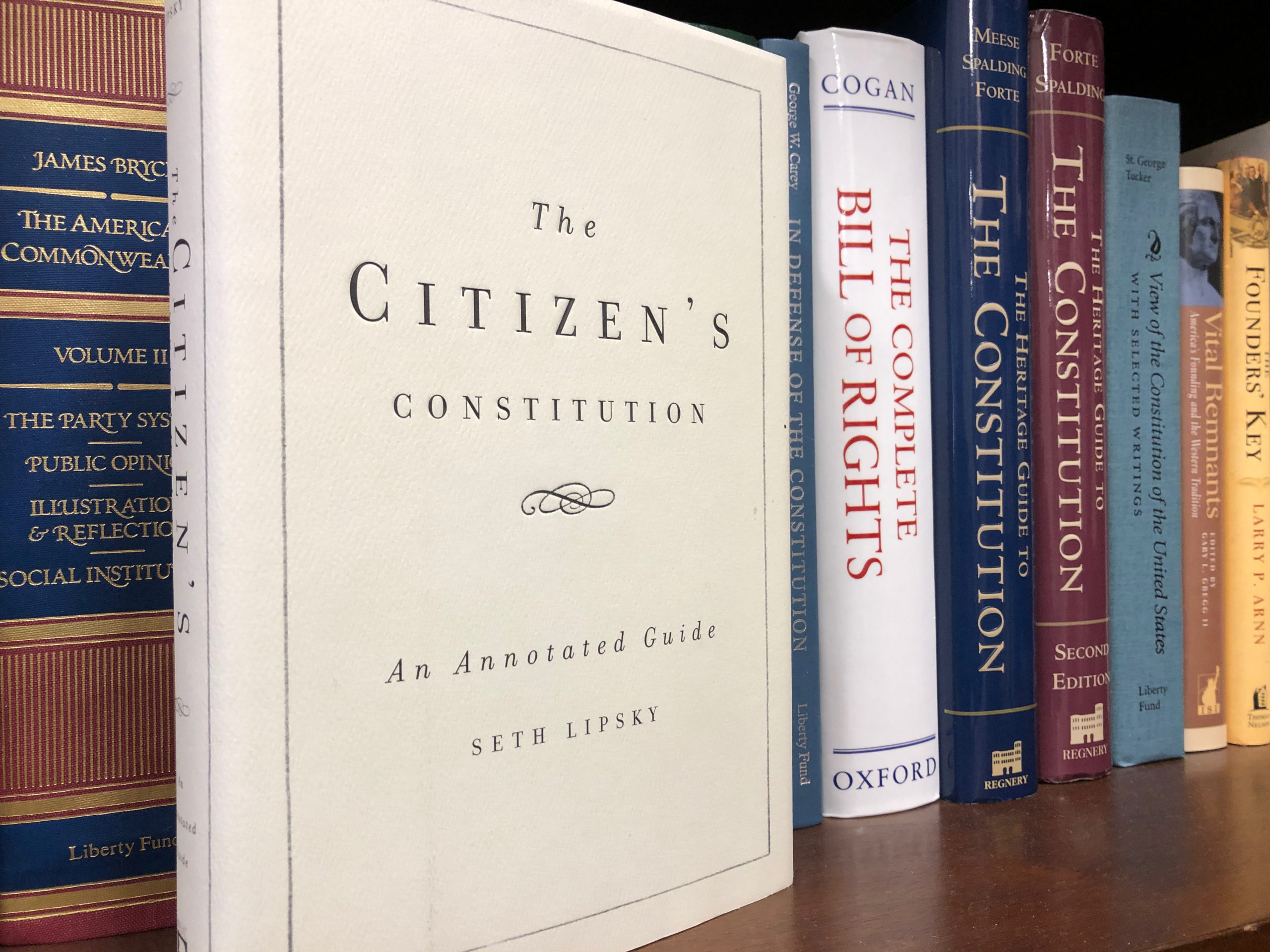As Constitution Day approached, I started thumbing through Seth Lipsky’s The Citizen’s Constitution, one of my favorites guides to the nation’s governing document.
 The 2009 book adds valuable context to constitutional provisions. It also tells great stories. Lipsky reminds us that that the Constitution has played an important role in Americans’ lives since its adoption in the late 1780s.
The 2009 book adds valuable context to constitutional provisions. It also tells great stories. Lipsky reminds us that that the Constitution has played an important role in Americans’ lives since its adoption in the late 1780s.
To a surprising degree the matters that were disputed then are still being fought over today. Some say that the openness of the Constitution to interpretation is its greatest feature. They thrill to it as a living document. Life is constantly breathed into it anew, and not only by judges and lawyers and congressmen and presidents. Yet others say that the Constitution’s greatest strength is its immutability — the notion that it sets a standard against which our laws can be measured. Certainly both sides agree that much constitutional work remains to be done. …
… All the more inspiring is the fact that ordinary Americans continue to turn to the Constitution, loyalty to which more than anything else — race, religion, national origin, language — defines what it means to be an American. This had led me to the view that the real heroes of constitutional law are the citizens themselves, the litigants who put their faith in the courts and the Constitution and often devote their life savings to the contest. One of my favorite stories is that of the vagrant who was thrown into the dock on charges of breaking into a poolroom at Panama City, Florida. He swore he was innocent, and throughout his trial he kept insisting the Supreme Court said he had a right to a lawyer. He pressed his case long after he was sent to prison, where he retreated to the library and, by hand, wrote his own appeals.
One of the appeals he scrawled — called a pauper’s petition — was noticed at the Supreme Court, which assigned one of the greatest legal minds in the country [later Supreme Court Justice Abe Fortas] to argue his case. The prisoner was famously wrong about what he said at his own trial; that the Supreme Court said he had a right to counsel. It hadn’t said so — yet. But the prisoner, the court decided, turned out to be right about the Constitution. It established a right to a lawyer for all accused of crimes in America. The Supreme Court ordered a new trial, but the prisoner refused the high-powered lawyers assigned to handle his case. He insisted on using a local lawyer from the town where the crime was committed. The lawyer was able to elicit testimony that cleared the prisoner, whose name — Clarence Earl Gideon — will be remembered as long as there is an America. I have thought about Gideon v. Wainwright hundreds of times over the years. What I keep marveling at is the astounding thing this vagrant accomplished by dint of having at some point either read the Constitution or heard some mortal’s idea of the fantastic things it says.


